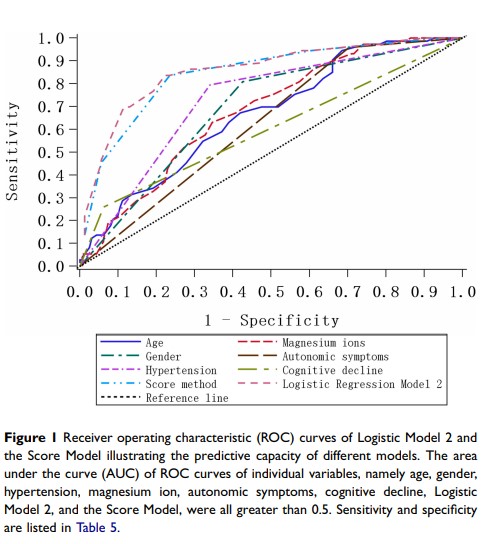109814
论文已发表
注册即可获取德孚的最新动态
IF 收录期刊
- 3.4 Breast Cancer (Dove Med Press)
- 3.2 Clin Epidemiol
- 2.6 Cancer Manag Res
- 2.9 Infect Drug Resist
- 3.7 Clin Interv Aging
- 5.1 Drug Des Dev Ther
- 3.1 Int J Chronic Obstr
- 6.6 Int J Nanomed
- 2.6 Int J Women's Health
- 2.9 Neuropsych Dis Treat
- 2.8 OncoTargets Ther
- 2.0 Patient Prefer Adher
- 2.2 Ther Clin Risk Manag
- 2.5 J Pain Res
- 3.0 Diabet Metab Synd Ob
- 3.2 Psychol Res Behav Ma
- 3.4 Nat Sci Sleep
- 1.8 Pharmgenomics Pers Med
- 2.0 Risk Manag Healthc Policy
- 4.1 J Inflamm Res
- 2.0 Int J Gen Med
- 3.4 J Hepatocell Carcinoma
- 3.0 J Asthma Allergy
- 2.2 Clin Cosmet Investig Dermatol
- 2.4 J Multidiscip Healthc

一种新型的前庭性偏头痛诊断预测模型
Authors Zhou C, Zhang L, Jiang X, Shi S, Yu Q, Chen Q, Yao D, Pan Y
Received 27 March 2020
Accepted for publication 3 July 2020
Published 29 July 2020 Volume 2020:16 Pages 1845—1852
DOI https://doi.org/10.2147/NDT.S255717
Checked for plagiarism Yes
Review by Single anonymous peer review
Peer reviewer comments 2
Editor who approved publication: Dr Jun Chen
Background: Increasing morbidity and misdiagnosis of vestibular migraine (VM) gravely affect the treatment of the disease as well as the patients’ quality of life. A powerful diagnostic prediction model is of great importance for management of the disease in the clinical setting.
Materials and Methods: Patients with a main complaint of dizziness were invited to join this prospective study. The diagnosis of VM was made according to the International Classification of Headache Disorders. Study variables were collected from a rigorous questionnaire survey, clinical evaluation, and laboratory tests for the development of a novel predictive diagnosis model for VM.
Results: A total of 235 patients were included in this study: 73 were diagnosed with VM and 162 were diagnosed with non-VM vertigo. Compared with non-VM vertigo patients, serum magnesium levels in VM patients were lower. Following the logistic regression analysis of risk factors, a predictive model was developed based on 6 variables: age, sex, autonomic symptoms, hypertension, cognitive impairment, and serum Mg2+ concentration. The area under the curve (AUC) of the receiver operating characteristic (ROC) curve was 0.856, which was better than some of the reported predictive models.
Conclusion: With high sensitivity and specificity, the proposed logistic model has a very good predictive capability for the diagnosis of VM. It can be used as a screening tool as well as a complementary diagnostic tool for primary care providers and other clinicians who are non-experts of VM.
Keywords: headache, dizziness, cognitive function, motion sickness, magnesium ion, predictive model
